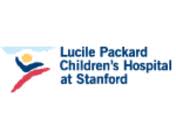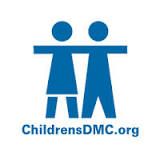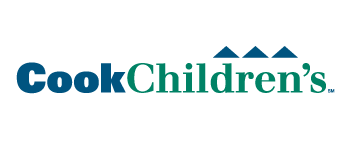Selinexor in Combination With Fludarabine and Cytarabine in Patients With Refractory or Relapsed Acute Myeloid Leukemia
| Status: | Recruiting |
|---|---|
| Conditions: | Blood Cancer, Blood Cancer, Hematology |
| Therapuetic Areas: | Hematology, Oncology |
| Healthy: | No |
| Age Range: | Any - 24 |
| Updated: | 4/4/2019 |
| Start Date: | January 14, 2016 |
| End Date: | September 2019 |
| Contact: | Jeffrey E. Rubnitz, MD,PhD |
| Email: | referralinfo@stjude.org |
| Phone: | 866-278-5833 |
A Phase I/II Study of the Selective Inhibitor of Nuclear Export Selinexor (KPT-330) in Combination With Fludarabine and Cytarabine in Patients With Refractory or Relapsed Leukemia or Myelodysplastic Syndrome
This study will be done in two parts: Phase I (NCT02212561) has been completed and published.
The goal of the Phase I portion of this study was to find the highest tolerable dose of
selinexor (KPT-330) that can be given to patients with leukemia or myelodysplastic syndrome
(MDS), when it is combined with fludarabine and cytarabine.
The Phase II portion of the protocol is reflected in this registration.
The goal of the Phase II portion of this protocol is to give the highest dose of selinexor
(KPT-330) in combination with fludarabine/cytarabine that was found in Phase I to be safe for
children with acute myeloid leukemia (AML). The investigators will examine the effect of this
combination treatment.
The goal of the Phase I portion of this study was to find the highest tolerable dose of
selinexor (KPT-330) that can be given to patients with leukemia or myelodysplastic syndrome
(MDS), when it is combined with fludarabine and cytarabine.
The Phase II portion of the protocol is reflected in this registration.
The goal of the Phase II portion of this protocol is to give the highest dose of selinexor
(KPT-330) in combination with fludarabine/cytarabine that was found in Phase I to be safe for
children with acute myeloid leukemia (AML). The investigators will examine the effect of this
combination treatment.
After the recommended Phase II dose was determined, additional patients began enrolling to
receive selinexor at the recommended dose level for further evaluation of tolerability and
response.
PRIMARY OBJECTIVE:
- To estimate the overall response rate, as defined by complete response or complete
response with incomplete count recovery, of selinexor in combination with fludarabine
and cytarabine for patients with relapsed or refractory AML in the phase II portion of
the study.
receive selinexor at the recommended dose level for further evaluation of tolerability and
response.
PRIMARY OBJECTIVE:
- To estimate the overall response rate, as defined by complete response or complete
response with incomplete count recovery, of selinexor in combination with fludarabine
and cytarabine for patients with relapsed or refractory AML in the phase II portion of
the study.
Inclusion Criteria:
- Participants must have a diagnosis of AML and must have disease that has relapsed or
is refractory to chemotherapy, or that has relapsed after hematopoietic stem cell
transplantation (HSCT)
- Refractory disease is defined as persistent disease after at least two courses of
induction chemotherapy.
- Patients are eligible at first or subsequent relapse, whereas patients with ALL
are eligible at second or subsequent relapse or any relapse that is refractory to
salvage chemotherapy.
- Patients must have ≥ 5% leukemic blasts in the bone marrow and/or increasing
levels of MRD in the bone marrow as assessed by flow cytometry. If an adequate
bone marrow sample cannot be obtained, patients may be enrolled if there is
unequivocal evidence of leukemia in the peripheral blood.
- Adequate organ function defined as the following:
- Direct bilirubin ≤ 1.5 x institutional upper limit of normal (IULN)
- AST (SGOT)/ALT (SGPT) < 3 x IULN
- Creatinine within normal institutional limits for age
- Prothrombin time (PT) and partial thromboplastin (PTT) ≤ 1.5 x IULN.
- Age criteria: Patients treated at collaborating sites and current St. Jude patients
who are on therapy or within 3 years of completion of therapy must be ≤ 24 years old.
All other St. Jude patients must be < 21 years old.
- Patients must be able to swallow tablets.
- Performance status: Lansky ≥ 50 for patients who are ≤ 16 years old and Karnofsky ≥
50% for patients who are > 16 years old.
- Patients must have fully recovered from the acute effects of all prior therapy.
- For patients who have received prior HSCT, there can be no evidence of GVHD and
greater than 60 days must have elapsed since the HSCT.
Exclusion Criteria:
- History of cerebellar toxicity or cerebellar neurological findings on exam.
- Must not be pregnant or breastfeeding. Female patients of child-bearing potential must
agree to use dual methods of contraception and have a negative serum pregnancy test at
screening, and male patients must use an effective barrier method of contraception if
sexually active with a female of child-bearing potential. Acceptable methods of
contraception are condoms with contraceptive foam, oral, implantable or injectable
contraceptives, contraceptive patch, intrauterine device, diaphragm with spermicidal
gel, or a sexual partner who is surgically sterilized or post-menopausal. For both
male and female patients, effective methods of contraception must be used throughout
the study and for three months following the last dose.
- Patients with Down syndrome, acute promyelocytic leukemia, juvenile myelomonocytic
leukemia, Fanconi anemia, Kostmann syndrome, Shwachman syndrome, or other bone marrow
failure syndromes are not eligible.
- Use of investigational agents, with the exception of gemtuzumab ozogamicin, within 30
days.
- Any significant concurrent disease, illness, or psychiatric disorder that would
compromise patient safety or compliance, study participation, follow up, or
interpretation of study research.
- Unstable cardiovascular function:
- symptomatic ischemia
- congestive heart failure NYHA Class > 3
- myocardial infarction (MI) within 3 months
- Uncontrolled infection requiring parenteral antibiotics, antivirals, or antifungals
within one week prior to first dose. Infections controlled on concurrent
anti-microbial agents are acceptable, and anti-microbial prophylaxis per institutional
guidelines are acceptable.
- Known human immunodeficiency virus (HIV) infection (pre-study testing not required).
- Patients with malabsorption syndrome, or any other disease significantly affecting
gastrointestinal function.
- Prior treatment with selinexor.
We found this trial at
7
sites
725 Welch Rd
Palo Alto, California 94304
Palo Alto, California 94304
(650) 497-8000

Principal Investigator: Normal J. Lacayo, MD
Phone: 650-497-8953
Lucile Packard Children's Hospital Stanford University Stanford Children's Health is the only network in the...
Click here to add this to my saved trials
5801 South Ellis Avenue
Chicago, Illinois 60637
Chicago, Illinois 60637
773.702.1234

Principal Investigator: Jennifer McNeer, MD
Phone: 773-834-7424
University of Chicago One of the world's premier academic and research institutions, the University of...
Click here to add this to my saved trials
262 Danny Thomas Pl
Memphis, Tennessee 38105
Memphis, Tennessee 38105
(901) 495-3300

Principal Investigator: Jeffrey E. Rubnitz, MD, PhD
Phone: 866-278-5833
St. Jude Children's Research Hospital St. Jude is unlike any other pediatric treatment and research...
Click here to add this to my saved trials
3901 Beaubien St
Detroit, Michigan 48201
Detroit, Michigan 48201
(313) 745-5437

Principal Investigator: Jeffrey W. Taub, MD
Phone: 313-745-5515
Children's Hospital of Michigan Since 1886, the Children's Hospital of Michigan has been dedicated to...
Click here to add this to my saved trials
Duke Univ Med Ctr As a world-class academic and health care system, Duke Medicine strives...
Click here to add this to my saved trials
801 7th Avenue
Fort Worth, Texas 76104
Fort Worth, Texas 76104
(682) 885-4000

Principal Investigator: Kenneth M. Heym, MD
Phone: 682-885-4007
Cook Children's Medical Center Cook Children's Health Care System is a not-for-profit, nationally recognized pediatric...
Click here to add this to my saved trials
1919 E Thomas Rd
Phoenix, Arizona 85006
Phoenix, Arizona 85006
(602) 933-1000

Principal Investigator: Jessica Boklan, MD
Phone: 602-933-0920
Phoenix Children's Hospital Phoenix Children's Hospital has provided hope, healing, and the best healthcare for...
Click here to add this to my saved trials
